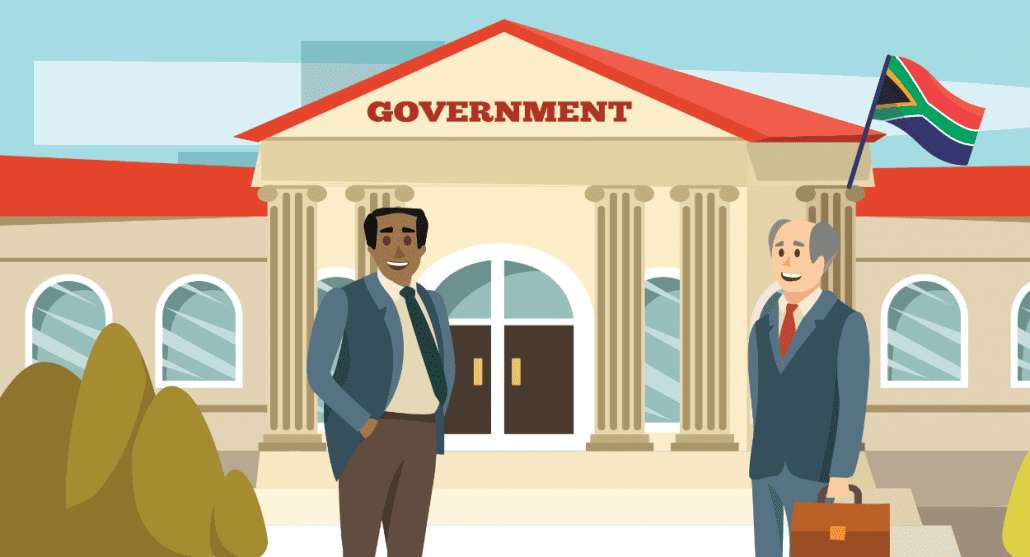At the beginning of May, the Department of Public Service and Administration (DPSA) presented its 2023/2024 annual performance plan to the parliamentary portfolio committee on Public Service and Administration, Performance Monitoring and Evaluation. At the same meeting the Public Service Commission (PSC), National School of Government, and Centre for Public Service and Innovation presented their performance plans for the upcoming financial year.
Two issues the committee was specifically briefed on were the imminent implementation of the professionalisation framework for the public service, and the expensive problem of long, drawn-out precautionary suspensions. Along with management of vacancies in the sector, these were the “burning issues” which, DPSA minister Noxolo Kiviet said, needed immediate attention and were receiving it.
Professionalisation of the public service
In February 2023, in his State of the Nation address, President Cyril Ramaphosa said that South Africans deserve a professional public service space. “A professional public service, staffed by skilled, committed and ethical people, is critical to an effective state and ending corruption, patronage, and wastage.”
Ramaphosa mentioned integrity assessments as a mandatory requirement for recruitment to the public service, and the amendment of legislation as well as strengthening of the PSC’s role. This will ensure that suitably qualified people are appointed to senior management positions.
Committee members also pointed to the recent nurses’ strike as an example of the need to pay particular focus to public sector areas that needed strengthening – such as developing and agreeing on what minimum standards were needed in areas of essential services, particularly in hospitals.
“It is unthinkable in this democracy,” said Kiviet, “to see people taking away the right to life by forbidding people access to primary healthcare.”
Accordingly, standards were going to be regulated to ensure people’s lives and rights were protected. This includes current collaboration with other government departments in the governance cluster to develop the wage management strategy and better manage salaries in the public service.
National framework for professionalisation
The national framework aimed at professionalisation of the public service space was approved by Cabinet last year. DPSA director-general Yoliswa Makhasi told the committee that the implementation of the professionalisation framework included the following:
- Ensuring there would be an integrated public services handbook that seeks to promote common interpretations and understanding, as contemplated in Section 42 of the Public Service Act 103 regarding professionalisation standards development;
- Devolving operational matters from executive authorities to heads of departments, to promote administrative efficiency and to improve the political-administrative interface in the current legislative amendments;
- Developing standard operating procedures (SOPs) across government. Government processes were increasingly dependent on individuals, which led to a lack of institutionalisation and sustainability of interventions. Departments must ensure that all identified professionalisation interventions are institutionalised through SOPs; and
- Developing a psychometric integrity testing tool.
In terms of requirements for appointments, the framework would ensure:
- The tightening of pre-entry requirements as well as effective recruitment and selection processes that inform meritocratic appointments at middle and senior management levels;
- Undertaking workplace orientation and induction programmes that promote a healthy organisational culture;
- Effective planning, performance management and appraisal systems, including performance standards and assessment instruments for different categories of employees;
- Performance management can also be aligned with professional body or association registration;
- Public servants undertaking continuous learning and professional development. This will include, as well, the professionalisation of certain categories of occupations in the public sector; and
- Managing the career progression and career incidents of public servants and heads of department.
Precautionary suspensions
South Africans have been footing the bill for salaries of suspended officials for too long. At the end of 2022, responding to a parliamentary question on how many public servants were currently suspended, Thulas Nxesi – then acting minister of Public Service and Administration – responded that 305 public servants were on suspension with full pay, and the cost to the taxpayer was R131-million. It is not clear if this figure is the total spent so far, or the annual sum..
In May this year that number had risen to 315 precautionary suspension cases at national government level, the DPSA reported, with a further 292 precautionary suspensions across provincial departments. In the short term, the department would issue a policy directive to address:
- Postponements and delays;
- Forum shopping by employees undergoing disciplinary action – this term refers to the common practice of employees jumping from one public sector institution to another;
- Review and alignment of turnaround times for disciplinary processes;
- Consequences for employers and employees who delay the conclusion of cases;
- The need to strengthen the role of labour relations offices in discipline processes – including capacity building and training;
- Categorising the type of cases that could be chaired internally/externally (lawyers).
The DPSA also noted plans to establish an independent panel, in the form of a ministerial committee, to review and make recommendations to officials and accounting officers on long-term suspensions in the system.
Medium-term plans, to be implemented from April 2023 to March 2024, include the establishment of a centrally coordinated mechanism for senior management service suspensions through the introduction of an automated, online reference system and workflow, and a review of the disciplinary code. Long-term plans, to be implemented from April 2024 to March 2025, involve the completion and full operation of the automated system and an online library of all disciplinary cases.

